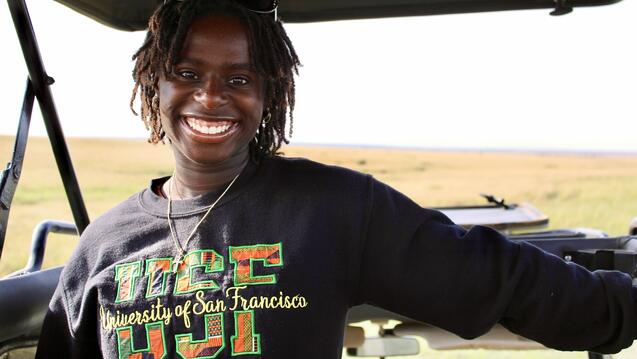Working Smarter (Not Harder) in the Fight Against COVID-19

Are we addressing coronavirus the “right” way? Marie-Claude Couture, epidemiologist and assistant professor in the School of Nursing and Health Professions, weighs in.
Is shelter-in-place a smart move or a Hail Mary?
Social distancing measures like shelter-in-place are what can and should be done in this stage of the epidemic. There are two major strategies to control infection: containment and mitigation. When too many people are sick you can no longer contain the spread, so you must take mitigation actions like social distancing. In the mitigation stage, our aim is to slow the volume of people in contact with the virus.
Why is flattening the curve a good thing?
Flattening the curve mitigates rapid spread, minimizing infections so that our health care system is not overwhelmed. Without this we’d see far more infections in health care workers. What is also notable is that our health care capacity is generally lower towards the beginning of an epidemic but the deeper into this we get, the more prepared we become.
How is that?
For one, we’re increasing the number of health care workers: medical and nursing students, retired doctors, specialists. We also become more prepared and knowledgeable, the more exposure we have to the virus. The entire system becomes more prepared.
Speaking of preparedness, how have countries like South Korea and Singapore been able to minimize transmission?
They started identifying infections early and implementing containment measures like contact tracing. COVID-19 is hard to identify, since symptoms present similar to flu and at different degrees of severity, and it is highly infectious which makes tracing more challenging. In countries like the ones you mentioned, they had widespread testing capability early on. Singapore’s government even developed an app to do digital contact tracing of the virus.
Are we doing anything like that?
I’m not sure an app or even stricter quarantine rules like in China would bode well here. The good news is that infectious disease researchers have been sharing data about the virus, making it easier for us to learn from other studies and experiences. Some biotechnology companies are ramping up production of tests that can give results in a few minutes. Fast, accessible testing like that will be crucial to our success.


